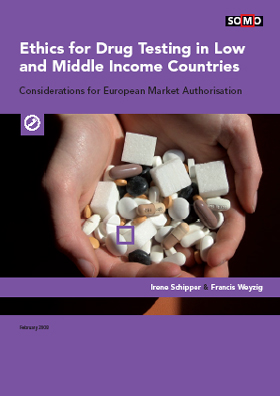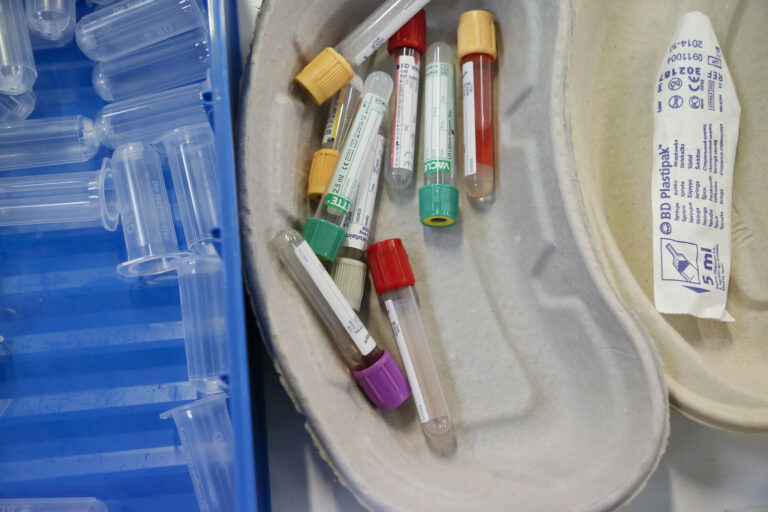
European citizens take bitter pill
SOMO and the Wemos Foundation present new evidence that ‘unfair’ drugs, medicines which have been unethically tested in low-income and middle-income countries, are being given approval for use on the European market.
In its report Ethics for drug testing in low and middle income countries: Considerations for European market authorisation SOMO analyses the justification for the use of placebos and the participation of vulnerable patient groups in phase III clinical trials. The report shows that European authorities grant EU marketing authorization based on clinical trials which are unethical. It also demonstrates that these authorities actually encourage the offshoring of unethical trials to countries outside Western Europe by requiring trials that are no longer accepted by the ethical review committees in Western Europe. As a result, controversial trials end up being conducted in low-income and middle-income countries where local regulatory authorities and ethical review committees are ill-equipped to cope with the enormous upsurge in the number of clinical trials.
“The consequences of this practice are serious”, warns SOMO researcher Irene Schipper. “For example, in one placebo-controlled trial to test Seroquel XR, an antipsychotic drug for the treatment of patients with schizophrenia, a 25-year old man committed suicide after 173 days of placebo treatment and 8.3 percent of the patients receiving a placebo required hospitalization due to worsening of their disease. This trial was conducted in Bulgaria, India, Poland, Russia and Ukraine and was only aimed at investigating the differences between formulations of the same antipsychotic. According to the Declaration of Helsinki, this type of trial can never justify the use of a placebo because it involves withholding treatment from seriously ill patients. Nevertheless, the Dutch Medicines Evaluation Board (CBG) approved Seroquel XR for the EU market.” The public assessment report for Seroquel is still not available, despite the fact that the CBG is legally required by EU Directives to publish it without delay. This lack of transparency is not limited to the Seroquel case. In general, SOMO has experienced great difficulty in obtaining information about where clinical trials were conducted and which ethical considerations were made.
The new Wemos-report A Bitter Pill is the first to provide an overview of the risks involved when clinical drug trials are carried out on the inhabitants of developing countries. Wemos puts forward concrete proposals for improving the protection of these vulnerable test subjects. It places particular emphasis on stricter checks by the bodies charged with the approval of new medicines and their admission to the European market, in other words the European Medicines Agency EMEA and the national registration authorities of each EU member state. Equally important is the compulsory registration by pharmaceutical companies of all trials in a publicly accessible register. A Bitter Pill includes a preface by Dr Heleen Dupuis, Professor of Medical Ethics and a Member of the Dutch Upper Chamber of the States General.
Tomorrow in Strasbourg, a coalition of five organizations including Wemos, SOMO, Farmacie Mondiaal, Health Action International (HAI) Europe and the European Medical Students’ Association (EMSA), will present the reports to Dutch MEPs Dorette Corbey (Labour) and Maria Martens (Christian Democrats). The coalition will call on politicians to put a stop to ‘unfair’ drugs.
(opens in new window)
Related news
-
 EU health data law rolls out the red carpet for Big TechPosted in category:Long read
EU health data law rolls out the red carpet for Big TechPosted in category:Long read Irene SchipperPublished on:
Irene SchipperPublished on: -
Civil society coalition urges EU to put the interests of patients and citizens at the heart of the European Health Data SpacePosted in category:Published on:Statement
-



